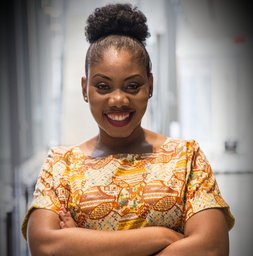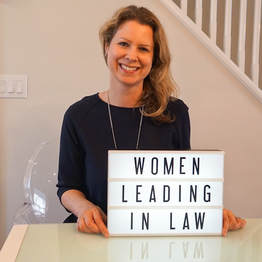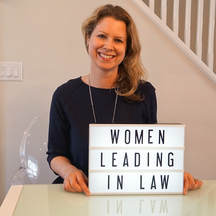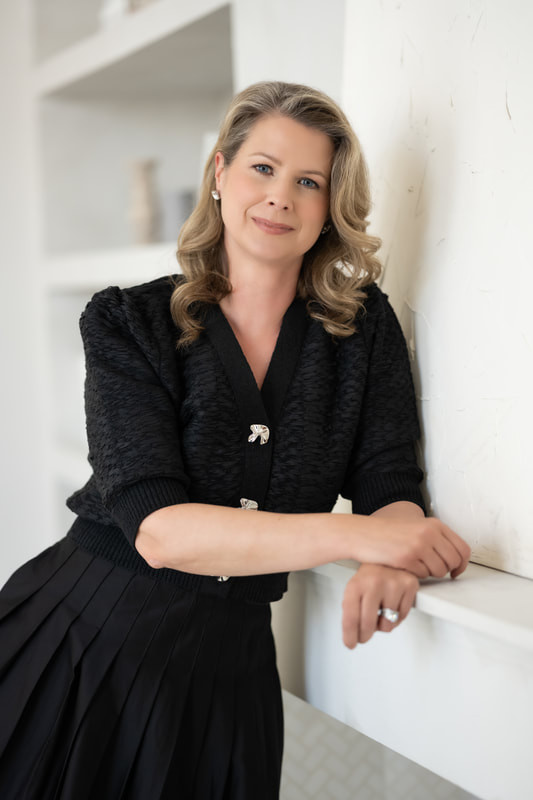 A few months ago, a reader of this blog series asked if I could profile women lawyers who successfully re-entered the practice of law after taking some time away. The leading lawyer profiled in this post, Melanie Sharman Rowand, did just that: successfully returned to practice after a nine year break. Read on to learn more about Melanie's practice, her experiences and her tips for lawyers starting their legal careers: 1. Tell me a little about your practice or business: I am a patent agent and lawyer in the IP and Regulatory Group at Torys LLP in Toronto. I have an advanced degree in botany/biology and specialize in the life sciences sector – including food and agriculture, pharmaceuticals, and biotechnology. My clients range from start-ups and universities to leading national and international corporations. I use my science background every day and am always learning something new. 2. Why did you go to law school? I was in graduate school and felt that law school would open up a variety of career options. My game plan was to become a patent lawyer, which was what I ended up doing. 3. How did you get to where you are today? Design? Chance? Both? Both – plus a lot of hard work and the good fortune to work with progressive colleagues. My career path was unusual in that I took off 9 years after my second daughter was born. I stayed in touch and was very fortunate to be given the opportunity to return to my old firm. I worked very hard to establish myself in the early years of my practice and I worked very hard to relaunch my career when I returned to work. There are a lot of talented and experienced women who took time off when their children were young and are looking to re-enter the workforce – there is a lot of untapped potential out there. 4. What is your most significant achievement? What are you proud of? Relaunching my practice was my biggest challenge and proudest accomplishment. I have been back at work for four years now and it almost feels like I never left. However, I have come back with a little more life experience and maturity, which can be helpful when interfacing with clients. 5. What are some key challenges, and more importantly, opportunities for women in law? There are tremendous opportunities for women in law. But for those women who wish to have children, there can be a tension between the timing of their biological clock and the partnership track. On the positive side, women (and men) have more options than ever before. Law firms are becoming more open to alternative working arrangements, and there are an increasing array of in-house options to choose from. 6. What advice would you give a woman starting her legal career? (i) Work hard to distinguish yourself early in your career. If you establish a solid reputation now it will open doors for you later. Get as much experience as you can and be proactive in shaping your career by seeking out work that interests you. (ii) Foster connections with colleagues and classmates and treat everyone with respect– remember that it is a really small bar with lots of mobility so your fellow classmates and colleagues may be future clients, employees or employers. (iii) Tap into the women’s networking groups – they are fantastic. (iv) When an opportunity falls in your lap, don’t be afraid to run with it. (v) Work hard and do your best, but don’t be overly hard on yourself – if you have a setback, dust yourself off and keep going. -------------------------------------------------------------------- Thank you Melanie for taking the time to answer these questions (these questions can be hard to answer!) and for sharing your experiences with us. ICYMI: Previous posts profiled Meg Chinelo Egbunonu, Lisa Jean Helps, Nathalie Godbout Q.C., Laurie Livingstone, Renatta Austin, Janis Criger, May Cheng, Nicole Chrolavicius, Charlene Theodore, Dyanoosh Youssefi, Shannon Salter, Bindu Cudjoe, Elliot Spears, Jessica Prince, Anu K. Sandhu, Claire Hatcher, Esi Codjoe, Kate Dewhirst, Jennifer Taylor, Rebecca Durcan, Atrisha Lewis, Vandana Sood, Kathryn Manning, Kim Hawkins, Kyla Lee, and Eva Chan. Sign up to have these profiles sent directly to your email address and stay tuned for the next post soon! I started this blog series because I was tired of hearing about women leaving law and wanted to hear about women leading in law. The "Women Leading in Law" series focuses on good news stories and highlights amazing women succeeding in the legal profession. Each post includes the profiled lawyer's answers to six questions. Prepare to be inspired! The series will continue until December 2018.
0 Comments
 This week this blog series focuses on an internationally trained woman leading in law: Meg Chinelo Egbunonu. I first met Meg at an OBA event, after which I connected with her on LinkedIn. I have been impressed with Meg's blog posts, her insights, and her real "go get-em" attitude. After practicing for several years in Nigeria, Meg was recently called to the bar in Ontario on September 28, 2018. Congratulations! 1. Tell me a little about your practice or business: I am an internationally trained corporate-commercial and business lawyer, recently transitioned into the Canadian legal ‘market’. My past international experience as a lawyer cuts across diverse areas of work, including Corporate Governance, Mergers & Acquisitions, Corporate & Project Financing, Banking & Securities Regulation, Business Regulatory Compliance, Legal Advisory, and Litigation. I have practiced as in-house counsel and in private practice, while advising a range of clients from small businesses, to multinational organisations, regulatory bodies and non-governmental organisations. I just concluded the Ontario licensing process, and I am integrating into the Ontario legal space. 2. Why did you go to law school? My first instinct is to blame this on Sherlock Holmes and Agatha Christie’s “Miss Marple” stories! From a very young age, I realized that I enjoyed activities which required a highly analytical thought-process. Every time I read mystery books, I would solve the mysteries at the middle of the book, then finish the book to corroborate my theories of who committed the crime. Local Nigerian games like Ludo, and “Ayo” which required a lot of calculative thinking in winning, were my favourite games. I also found out rather early that I was a good advocate, often leading my secondary school in inter-school debate victories, and winning the best debater prize. I was that person who would speak up against injustice as a youngster- which, as the culture at the time was that a child was only “to be seen and not heard!” and being the only girl and the last child with four older brothers - surely taught me to stand my ground and ensure my voice was heard, in order to obtain desired results... even in the most mundane things (like sharing the Christmas chicken with my brothers). There was no “aha!” moment: law was my natural first choice, despite my father severally suggesting banking to me. And even though I harnessed my creative talents as a youth in poetry, writing, and dancing, when the time came to choose my course for my undergraduate studies, it was law or nothing else. You could say that I just always wanted to be a lawyer. 3. How did you get to where you are today? Design? Chance? Both? I think it is a combination of both, with a little more of deliberate action on my part. My journey has surely been an interesting one. Having graduated from the Nigerian Law School, I had started out in practice as a Criminal Litigator. In my first year, during the compulsory National Service program of Nigeria, I was moved to the Corporate Commercial unit by the mid-sized law firm I worked in. At first, I despised Corporate Commercial and Business Law litigation and transactional work. My only exposure to law had hitherto been criminal litigation. With time however, I began to pick up an interest in corporate work. I began enjoying literally tearing down and reconstructing commercial agreements. I began to understand the dynamics of Boardroom politics, and became a certified Corporate Governance professional as a Chartered Secretary in the United Kingdom. I subsequently had considerable in-house experience, which exposed me to the practicalities of managing a business, even as a lawyer. When it was time for me to do post-graduate studies, I did not have the finances to fund my Masters degree. So I searched for scholarships, and was eventually awarded a double scholarship by the Schulich Law School and the Faculty of Graduate Studies of Dalhousie University for a Masters degree in Business Law. The program introduced me to a higher level of analytical thinking and exposure in global business and commercial law matters. More importantly, I got personal exposure into law practice in North America, and that was when the seed to become a North American lawyer was born. But I went right back to Nigeria after my program, eventually joining one of the best and biggest law firms in Nigeria as a corporate-commercial lawyer. So when the opportunity to return permanently to Canada presented itself, it took me a long time to make the decision and eventually make the move, as I was leaving what I considered my ‘dream-job’, a life of comfort, and amazing colleagues for a future I was not sure of. But I made that move, wanting “more”: a larger exposure on an international-scale to the kind of corporate commercial/business law work that I had come across when I advised international clients. And I have not looked back ever since. 4. What is your most significant achievement? What are you proud of? This is a rather humbling question, as I feel like I am just getting started, and there is a world waiting to be conquered. Aside from my practice of law, I am passionate about (and have been involved in various advocacy causes regarding) female empowerment, child rights, social justice and good governance. To that extent, perhaps, I could say that a significant achievement has been being recognised for my activism, and given the privilege to speak at a regional TED event, about not being confined by the boxes and stereotypes created by society, which boxes (at the very least) perpetuate mediocrity, and (at the most) contribute to harming us. Another significant personal achievement that comes to mind was my creating and becoming the chief content creator of Meet My Busy Mind which is an analytical online platform dissecting a range of issues, from Beyonce’s newest song, to the kidnapping of school girls by the terror group Boko-Haram. I have had a lot of feedback from people on how this blog has positively impacted their life, and the high point for me was earlier this year when the Canadian Association of Black Lawyers featured one of my articles from the blog in its quarterly magazine. The blog is my immediate platform for expressing my voice, and encouraging the next generation of Nigerian women to let their voices be heard. Professionally, my most recent achievement has been my breaking into the Canadian legal market. While it is a process I cannot say I have completely concluded, I have made significant progress, especially in light of the strides I have made and the time within which I concluded the Ontario lawyer licensing process. Prior to now, I had heard how arduous it was to break in as an internationally trained lawyer, and from my personal research, the licensing process would usually take between 18 months to three years to be successfully concluded. But I began the licensing process last year, writing all NCA (National Committee on Accreditation) exams at one sitting last October, writing the Bar exams this year, and meeting the other requirements of the Law Society of Ontario, culminating into my being called to the Bar of Ontario on 28th September. This is two days shy of the day I landed in Canada to begin this life. While I am still interviewing and exploring opportunities to begin practice here, I am proud of myself for being able to conclude all the exams in a space of 9 months, obtaining my licence within less than a year of having permanently moved, and thankful for the formidable network of mentors and friends I have built in the Ontario legal community. 5. What are some key challenges, and more importantly, opportunities for women in law? For a profession such as ours, one prevailing theme I have observed that cuts across in both Nigeria and Canada is that the legal profession is more male-dominated. Naturally, women would have the additional expectation of proving themselves more than their male colleagues, while navigating prejudices such as being seen as “emotional” (as against passionate), or aggressive (as against ambitious). Until that glass ceiling is shattered globally, it has often resulted into female lawyers having to do more and hold themselves to higher standards than their male colleagues. There are also the unique challenges which the intersectionality of being a racialized, immigrant female presents; dealing with a myriad of issues including having to convince prospective employers on the transferability of your skills to the Canadian market, while finding innovative ways to satisfy usually unaired (but strongly present) questions that domestic commitments would not hinder your ability to pull your weight as your male counterparts. Notwithstanding, there are opportunities which abound for women in the profession. There are opportunities for entrepreneurship as sole practitioners or freelance lawyers. For those like me from a Big Law background, there are opportunities in private practice and in-house counsel positions. I believe it boils down to sheer grit, determination and not giving up, despite the number of times doors shut in one’s face. Since the profession is a highly competitive one, it may require being a little bit more innovative, and even running with trends that others are still grappling with, such as Artificial Intelligence, or Commercial Transactions in emerging economies. The beauty of our profession is that you can really be anything, and go any direction you want to. 6. What advice would you give a woman starting her legal career? Be courageous. That would be my advice. Being courageous does not mean you will not seek guidance at various times, or that there will not be pitfalls in your career. It does not promise that you will not have 7.30am – 2.30am work-days, or that you will not grapple with fear. Rather, it is being courageous that will enable you to volunteer on that new brief, do the first-time research on the work, and achieve groundbreaking success for the firm. It is courage that would be with you when you are thrown into a different area of law than that which you are used to. While fear will see you making initial mistakes, and feeling lost 95% of the time, courage will push you to rise above the mistakes, apply yourself to the job at hand, and eventually shine through the assignment. And when it is time to make the fearful career risks, it is courage that will help recognize opportunities, while listening to your gut instinct. Courage is the hallmark of the lawyer as an advocate or a solicitor. -------------------------------------------------------------------------- Thank you Meg for taking the time to answer these questions and for sharing your experiences with us! ICYMI: Previous posts profiled Lisa Jean Helps, Nathalie Godbout Q.C., Laurie Livingstone, Renatta Austin, Janis Criger, May Cheng, Nicole Chrolavicius, Charlene Theodore, Dyanoosh Youssefi, Shannon Salter, Bindu Cudjoe, Elliot Spears, Jessica Prince, Anu K. Sandhu, Claire Hatcher, Esi Codjoe, Kate Dewhirst, Jennifer Taylor, Rebecca Durcan, Atrisha Lewis, Vandana Sood, Kathryn Manning, Kim Hawkins, Kyla Lee, and Eva Chan. Sign up to have these profiles sent directly to your email address and stay tuned for the next post soon! I started this blog series because I was tired of hearing about women leaving law and wanted to hear about women leading in law. The "Women Leading in Law" series focuses on good news stories and highlights amazing women succeeding in the legal profession. Each post includes the profiled lawyer's answers to six questions. Prepare to be inspired! The series will continue until December 2018. |
Erin C. Cowling is a former freelance lawyer, entrepreneur, business and career consultant, speaker, writer and CEO and Founder of Flex Legal Network Inc., a network of freelance lawyers.
Categories
All
Archives
December 2022
|
|
(C) 2014-2024 Cowling Legal. All rights reserved.
|
Please note I am not currently practicing law.
Information on this website does not constitute legal advice and is for informational purposes only. Accessing or using this website does not create a solicitor-client relationship. See website Terms of Use/Privacy Policy. info@cowlinglegal.com
3080 Yonge Street, Suite 6060 Toronto,ON M4N 3N1 (appointment only) |








 RSS Feed
RSS Feed
